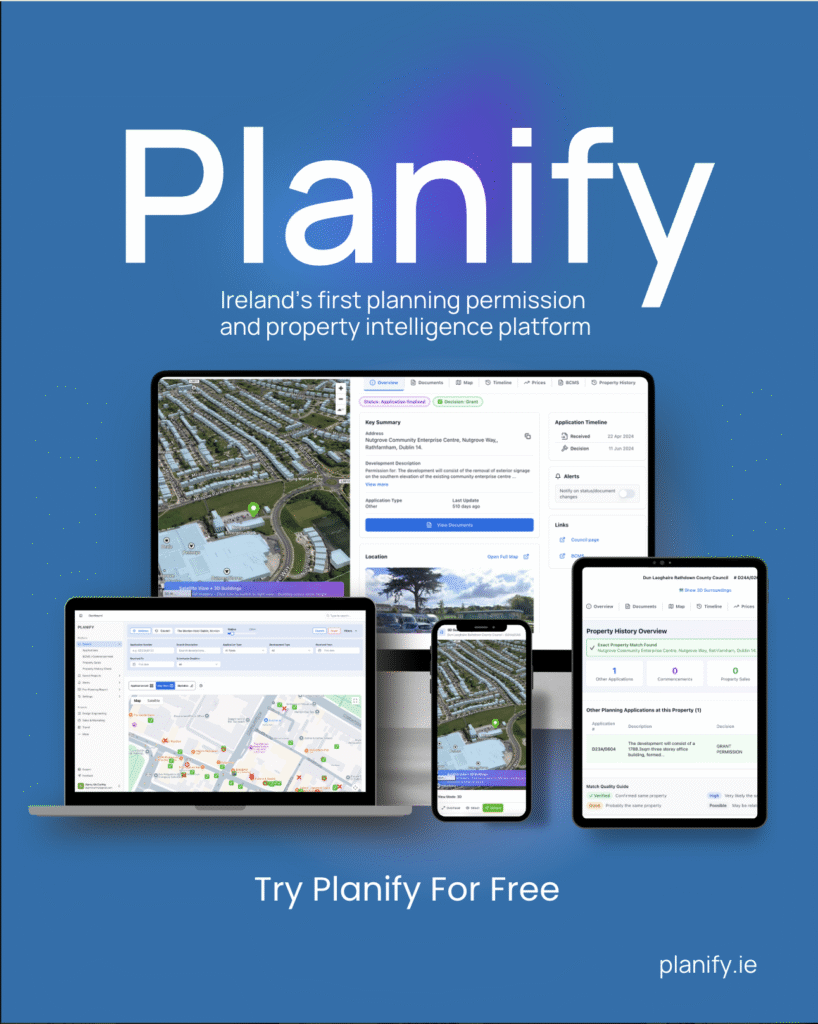A Guide to Unauthorised Developments in Ireland

Understanding Unauthorised Developments
Unauthorised developments pose significant challenges within the planning system in Ireland, potentially leading to legal, financial, and community implications. This comprehensive guide aims to demystify the concept of unauthorised developments, outline the potential consequences, and provide guidance on how to address or avoid such situations.
An unauthorised development occurs when construction, alteration, or change of use of land or buildings is carried out without the necessary planning permission or in violation of the conditions of a granted permission. This can range from minor alterations to significant constructions and changes in land use.
Types of Unauthorised Developments
- Building Without Permission: Constructing a new building, extension, or other structures without obtaining the required planning permission.
- Non-Compliance with Planning Conditions: Deviating from the conditions attached to a granted planning permission, such as building specifications, operational limitations, or environmental mitigations.
- Unauthorised Change of Use: Changing the use of a building or land (e.g., from residential to commercial) without securing the necessary permission.
The Consequences of Unauthorised Developments
The implications of proceeding with an unauthorised development can be severe and multifaceted:
- Enforcement Action: Local planning authorities have the power to take enforcement action against unauthorised developments, which can include orders to cease operations, remove structures, or revert land to its original state.
- Legal and Financial Penalties: Non-compliance with enforcement actions can lead to legal proceedings, resulting in substantial fines and, in extreme cases, imprisonment.
- Impact on Property Value: Unauthorised developments can significantly affect the value of a property, making it difficult to sell or mortgage.
- Regularisation Difficulties: Obtaining retrospective planning permission for an unauthorised development is uncertain and can be a complex, time-consuming process.
Addressing Unauthorised Developments
If you find yourself involved with an unauthorised development, either knowingly or unknowingly, there are steps you can take to address the situation:
- Cease Further Development: Immediately halt any ongoing construction or use that is unauthorised.
- Seek Professional Advice: Consult with a planning consultant or solicitor who specialises in planning law to understand your options and the best course of action.
- Engage with the Planning Authority: Proactively contact your local planning authority to discuss the situation. In some cases, early engagement can lead to more favourable outcomes.
- Apply for Retrospective Planning Permission: Depending on the circumstances, it may be possible to apply for and obtain retrospective planning permission for the development. However, this is not guaranteed and should be pursued with professional guidance.
- Comply with Enforcement Notices: If you receive an enforcement notice, it’s crucial to comply with its requirements within the specified timeframe or appeal the notice if you believe it to be unjustified.
Preventing Unauthorised Developments
Prevention is always preferable to remediation when it comes to unauthorised developments. Here are some key strategies:
- Understand Planning Requirements: Before commencing any development, thoroughly research whether planning permission is required and, if so, the specific conditions that apply.
- Apply for Planning Permission: If your development requires permission, ensure that you apply for and obtain it before starting work.
- Adhere to Granted Permissions: Follow all conditions attached to your planning permission meticulously to avoid non-compliance issues.
- Consult with Professionals: Engage with architects, planning consultants, and solicitors who can provide expert advice and guidance throughout the planning and development process.
Navigating the complexities of unauthorised developments requires a thorough understanding of planning regulations, proactive engagement with planning authorities, and, when necessary, swift action to rectify non-compliance. By adhering to planning laws and seeking professional advice, property owners and developers can avoid the pitfalls associated with unauthorised developments.




